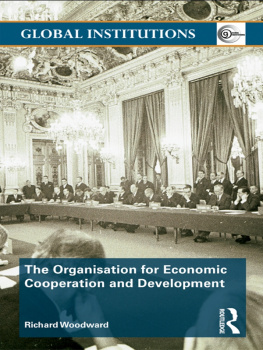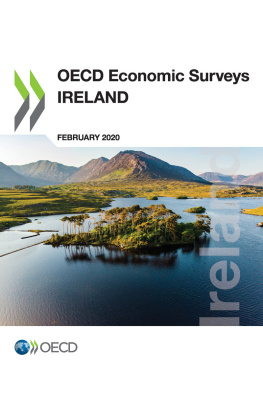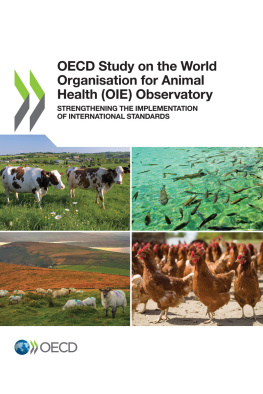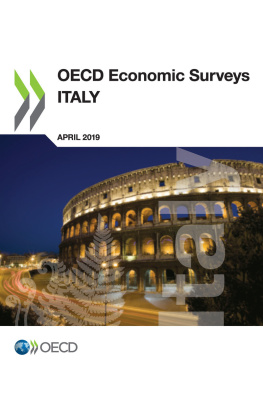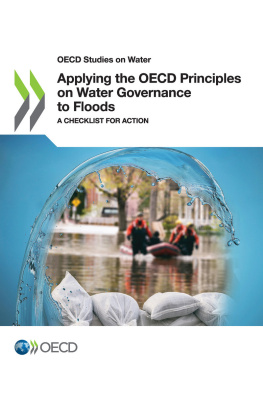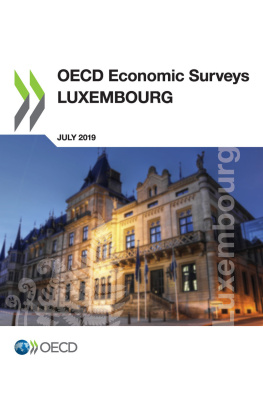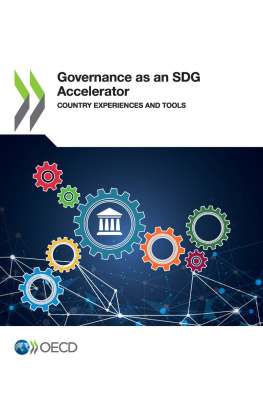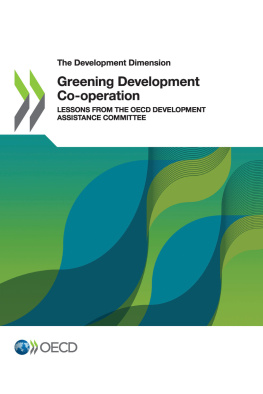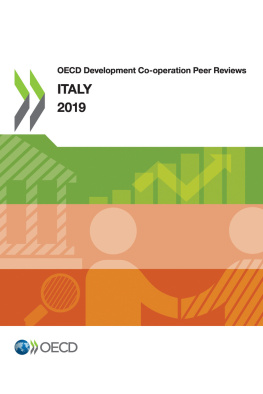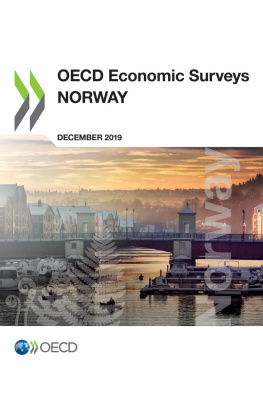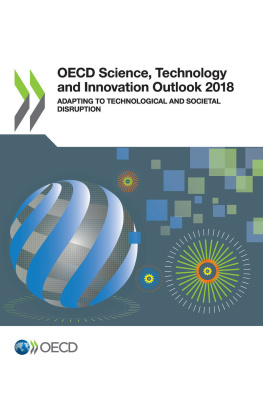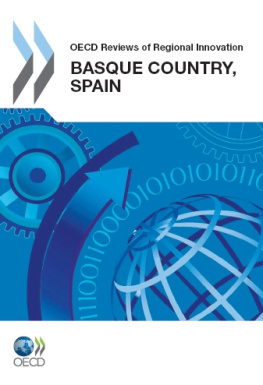The Organisation for Economic
Co-operation and Development
(OECD)
The Organisation for Economic Co-operation and Development (OECD) is one of the least written about and least understood of our major global institutions. This new book builds a well rounded understanding of this crucial, though often neglected, institution, with a range of clearly written chapters that:
- outline its origins and evolution, bringing its story fully up to date;
- present a clear framework for understanding the OECD;
- set the institution within the broader context of global governance;
- outline key criticisms and debates;
- evaluate its future prospects.
Given the immense challenges facing humanity at the start of the twenty-first century, the need for the OECD as a venue where the worlds leading states can discuss, on an informal and ongoing basis, the conundrums of globalization has never been greater. The clarity and rigor of these chapters cut through the layers of misunderstanding and misconception that surround the OECD, often dismissed as a rich mans club, a think-tank and a consultative forum. This new book dismantles these labels to provide a holistic understanding of the organization.
This concise and accessible introduction is essential reading for all students of international relations, politics, and world history and affairs.
Richard Woodward is a Lecturer in political economy in the Department of Politics, University of Hull, U.K.
Routledge Global Institutions
Edited by Thomas G. Weiss
The CUNY Graduate Center, New York, USA
and Rorden Wilkinson
University of Manchester, UK
About the Series
The Global Institutions Series is designed to provide readers with comprehensive, accessible, and informative guides to the history, structure, and activities of key international organizations. Every volume stands on its own as a thorough and insightful treatment of a particular topic, but the series as a whole contributes to a coherent and complementary portrait of the phenomenon of global institutions at the dawn of the millennium.
Books are written by recognized experts, conform to a similar structure, and cover a range of themes and debates common to the series. These areas of shared concern include the general purpose and rationale for organizations, developments over time, membership, structure, decision-making procedures, and key functions. Moreover, current debates are placed in historical perspective alongside informed analysis and critique. Each book also contains an annotated bibliography and guide to electronic information as well as any annexes appropriate to the subject matter at hand.
The volumes currently published include:
35 The Organisation for Economic Co-operation and Development (2009)
by Richard Woodward (University of Hull)
34 Transnational Organized Crime (2009)
by Frank G. Madsen (University of Cambridge)
33 The United Nations and Human Rights (2009)
A guide for a new era, 2nd edition
by Julie A. Mertus (American University)
32 The International Organization for Standardization and the GlobalEconomy (2009)
Setting standards
by Craig N. Murphy (Wellesley College) and JoAnne Yates(Massachusetts Institute of Technology)
31 Shaping the Humanitarian World (2009)
by Peter Walker (Tufts University) and Daniel G. Maxwell (Tufts University)
30 Global Food and Agricultural Institutions (2009)
by John Shaw
29 Institutions of the Global South (2009)
by Jacqueline Anne Braveboy-Wagner (City College of New York, CUNY)
28 International Judicial Institutions (2009)
The architecture of international justice at home and abroad
by Richard J. Goldstone (Retired Justice of the Constitutional Court of SouthAfrica) and Adam M. Smith (Harvard University)
27 The International Olympic Committee (2009)
The governance of the olympic system
by Jean-Loup Chappelet (IDHEAP Swiss Graduate School of PublicAdministration) and Brenda Kbler-Mabbott
26 The World Health Organization (2009)
by Kelley Lee (London School of Hygiene and Tropical Medicine)
25 Internet Governance (2009)
The new frontier of global institutions
by John Mathiason (Syracuse University)
24 Institutions of the Asia-Pacific (2009)
ASEAN, APEC, and beyond
by Mark Beeson (University of Birmingham)
23 UNHCR (2008)
The politics and practice of refugee protection into the twenty-first century
by Gil Loescher (University of Oxford), Alexander Betts (University ofOxford), and James Milner (University of Toronto)
22 Contemporary Human Rights Ideas (2008)
by Bertrand G. Ramcharan (Geneva Graduate Institute of InternationalStudies)
21 The World Bank (2008)
From reconstruction to development to equity
by Katherine Marshall (Georgetown University)
20 The European Union (2008)
by Clive Archer (Manchester Metropolitan University)
19 The African Union (2008)
Challenges of globalization, security, and governance
by Samuel M. Makinda (Murdoch University) and Wafula Okumu(McMaster University)
18 Commonwealth (2008)
Inter- and non-state contributions to global governance
by Timothy M. Shaw (Royal Roads University)
17 The World Trade Organization (2007)
Law, economics, and politics
by Bernard M. Hoekman (World Bank) and Petros C. Mavroidis(Columbia University)
16 A Crisis of Global Institutions? (2007)
Multilateralism and international security
by Edward Newman (University of Birmingham)
15 UN Conference on Trade and Development (2007)
by Ian Taylor (University of St. Andrews) and Karen Smith (Universityof Stellenbosch)
14 The Organization for Security and Co-operation in Europe (2007)
by David J. Galbreath (University of Aberdeen)
13 The International Committee of the Red Cross (2007)
A neutral humanitarian actor
by David P. Forsythe (University of Nebraska) andBarbara Ann Rieffer-Flanagan (Central Washington University)
12 The World Economic Forum (2007)
A multi-stakeholder approach to global governance
by Geoffrey Allen Pigman (Bennington College)
11 The Group of 7/8 (2007)
by Hugo Dobson (University of Sheffield)
10 The International Monetary Fund (2007)
Politics of conditional lending
by James Raymond Vreeland (Georgetown University)
9 The North Atlantic Treaty Organization (2007)
The enduring alliance
by Julian Lindley-French (Center for Applied Policy, Universityof Munich)
8 The World Intellectual Property Organization (2006)
Resurgence and the development agenda
by Chris May (University of the West of England)
7 The UN Security Council (2006)
Practice and promise
by Edward C. Luck (Columbia University)
6 Global Environmental Institutions (2006)
by Elizabeth R. DeSombre (Wellesley College)
5 Internal Displacement (2006)
Conceptualization and its consequences
by Thomas G. Weiss (The CUNY Graduate Center) and

